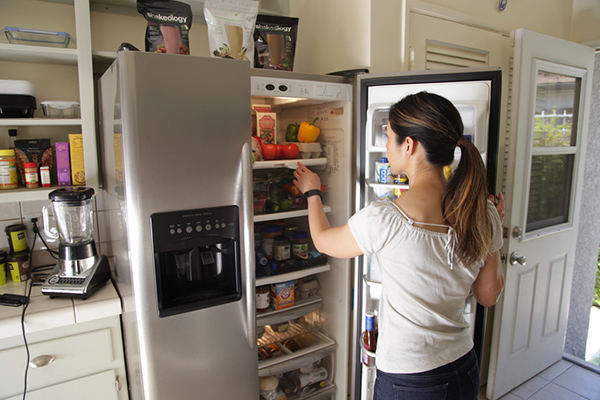What is Holistic Weight Loss?

Anyone who’s struggled to lose weight knows that the journey isn’t just about the physical; it affects all of you, mind and body.
A friend of mine has lost more than 100 pounds and kept it off. She shared with me that strangers and acquaintances often inquire why she did it the “hard way” (with healthy eating habits and exercise) versus having weight-loss surgery.
That wouldn’t have worked for her, she explained, because it was stomach surgery — not brain surgery.
Her weight gain was linked to her emotional health, and once she decided to be proactive about that aspect of her well-being, the other habits soon stuck and the pounds began to fall off.
That approach is an example of holistic weight loss, which considers your emotional and mental health, in addition to physical health.

What is Holistic Weight Loss?
Even if you’ve never heard the word “holistic” in relation to weight loss, you’ve likely implemented some techniques or habits that are, in fact, holistic. You could also call this approach integrative, interdisciplinary, or mind-body weight loss.
“The first thing one needs to understand and remember is that excess weight is a symptom,” says Wallisa Vaughn, M.D., a board-certified family medicine physician specializing in addiction and integrative and functional medicine.
When Dr. Vaughn helps patients with weight loss, she addresses far more than the weight itself. “I believe in addressing the actual cause of problems, and excess weight is frequently the result of one or more problems — and it leads to other problems.”
“In medicine, we look at holistic as treating the whole person,” says Rachel Goldman, Ph.D., FTOS, a licensed psychologist specializing in health and wellness. “If there are mental, emotional, or social factors going on, that can impact the physical symptoms.”
“The kind of weight loss that I encourage and that I help clients with is thinking about our mind, our body, thoughts, and emotions,” says Goldman, who is also a clinical assistant professor in the Department of Psychiatry at New York University School of Medicine.
While “holistic” is now a popular wellness buzzword, the practices it can encompass have been used for decades, Goldman explains.
Depending on your age, perspective, history with weight loss, and frame of reference, terms like “holistic” might be more appealing than a more clinical description like “integrative health,” she says.
Goldman works at a clinic where patients work with a whole team of experts: a dietitian, psychologist, trainer, and a physician. Other similar programs might also include an endocrinologist, a chef, or a meditation teacher.
“We’re really focusing on all angles of weight loss, because we know that obesity and weight gain are not just about the behaviors or just about our environment — or the food we’re eating,” says Goldman.
Holistic weight loss is like getting a full inspection instead of just an oil change; it makes sure all aspects of you are ready for your weight-loss journey.“You can lose 60 pounds and then still be miserable inside, or be depressed, or have poor self-image,” Goldman says. “That holistic approach is really going to get someone to be healthier and happier overall.”
(Pro tip: Need more ideas on how to eat right and get fit? Download our free “100 Ways to Lose Weight” guide here.)

Why Try Holistic Weight Loss?
In order to lose weight and keep it off, it’s important to focus on proper nutrition and exercise, not just one or the other.
And one of the keys to keeping that weight off is establishing sustainable lifestyle changes that you can stick with — and that includes things beyond what you eat and how you move.
No single aspect of your health exists in a vacuum; it’s all intertwined. This is what a holistic view of health looks like.
Integrative or holistic approaches to weight loss can help establish healthier mind-body relationships.
That’s why exercise has long been part of such treatment plans, says Dr. Vaughn. “You may be stressed because you’re overweight, or you may be overweight because you’re stressed — or both. Either, way exercise can help to break that unhealthy cycle.”
Regular exercise can help reduce stress and anxiety, which in turn can help you establish healthier eating habits.
Since most of us wouldn’t ignore a prescription from a doctor, Goldman says to think of weight-loss practices as being equally important.
Those habits might include drinking more water, monitoring food portions, managing stress, getting enough sleep, and regular exercise.
This reinforces the idea that the real work of weight loss happens throughout your daily life — and that shedding excess pounds is about more than one action.

6 Holistic Techniques for Weight Loss
If you’re ready to integrate a holistic approach to weight loss, start with these strategies. You might be doing some of them already!
1. Hold yourself accountable by tracking…everything
Goldman has her patients track everything: weight, meals, exercise, sleep, mood, stress, and water. The goal, she says, is not to become reliant on the numbers themselves, but to use them to draw connections between behavior and consequences — including success.
Use apps and trackers or a pen and paper, but jotting down what you’re doing to support your goals — or derail them — can provide valuable information later on.
If you step on the scale thinking you lost weight, only to see that you didn’t, you wouldn’t know what to change for next time if you hadn’t tracked it, she explains. “If we don’t have that data, we don’t know why or what’s going on. The number on the scale is only part of the answer.”
Pro tip: Think about the variables that might be affecting your own weight-loss efforts, and then track them to get a better grip on their effects. Sleep quality and stress levels are common interferences, so consider starting there.
2. Set goals, but be “SMART” about them
How many times have you said “I’ll exercise more,” only to end up being very flexible with the definition of “more”? We’ve all been there.
“The best way is actually to create SMART goals,” says Goldman, referring to the acronym that stands for specific, measurable, attainable (or achievable), relevant (or realistic), and timely. She prefers weekly goals, so you’ll know pretty quickly whether you met them.
The only exception to that rule for her is weight goals. “The number on the scale isn’t something we can control, but we can control the behaviors that cause the number to go up and down.”
To keep patients from getting too hung up on numbers, she first asks them to share how their week went. “This begins to connect our behaviors to our weight, which can lead to better choices and renewed commitment to goals,” she says.
Maybe you’ll reconsider that second glass of wine or think twice about dessert, for example, once you see how such indulgences can influence your weight when you have them too regularly.
Pro tip: Find time each week to set SMART goals for yourself, but don’t overdo it — one or two will do.
3. Talk it out with a professional
If you can relate to 30 Rock‘s Liz Lemon and her “night cheese,” you’re not alone. Emotional eating is the most common complaint Goldman’s patients have about losing weight and keeping it off, but she can’t help them unless she knows what else is going on.
“We have that vicious cycle of our negative thoughts, which can get us nowhere,” Goldman says.
A trained counselor or psychologist “can help people identify thoughts, identify the triggers that are causing those thoughts, and then help them work on changing those thoughts. It’s really about combining the behaviors and thoughts, because we all know weight loss is not just calories in and calories out; it’s not that easy. Our emotions tend to get in the way.”
Pro tip: You wouldn’t hesitate to seek medical treatment if you had a physical issue, so do the same if you’re struggling emotionally.
4. Include daily mind-body practices to chill out
Ever have those days where your mind’s in the game but your body isn’t, or vice versa? That’s where mind-body modalities like yoga, meditation, and tai chi can come in, as a way to re-establish that connection.
Goldman recommends doing deep breathing, yoga, or meditation daily. No time for an hour-long class? Take five or 10 minutes throughout your day to do some poses. She encourages patients to implement these practices morning and night to start the day feeling relaxed and de-stressed and set the tone for the next day.
Pro tip: We all have time for a few deep breaths: Set a timer on your phone for morning and night, and make time to breathe. Have more time? Keep going. No one ever says “my breathing is just way too deep and steady!”
5. Use positive reinforcement to reward yourself
You’ve worked hard, so you deserve to treat yo’self! That weekly Netflix binge or monthly manicure can actually help support your weight-loss goals.
Positive reinforcement works, Goldman says — “depending on what reward you’re using and what you’re using as that positive reinforcement. Of course, we don’t want to be using food.”
You don’t need to break the bank on rewards, either. Make time for an Epsom salt bath to ease aching muscles after a workout, go to a movie with a friend, or listen to your favorite podcast.
And don’t feel guilty about these acts of self-care and self-love, says Goldman: “We should be rewarding ourselves for good behavior.” (Hey, if it works for potty training…)
She especially likes to use positive reinforcement when the weight is slow to come off by telling her patients to use non-scale ways to determine success, like feeling stronger and noticing how their clothes fit differently.
Pro tip: On days when you’re feeling less-than-excited about your weight-loss habits, make a list of potential rewards. Don’t just make them contingent on weight loss, either. Reward yourself for two consecutive weeks of healthy meal prep, or for a month of sticking with your workouts.
6. Re-define weight “loss”
Dr. Vaughn uses a simple shift in vocabulary to help patients visualize their healthier, happier, potentially smaller selves: “People always say ‘you lost weight.’ You didn’t lose it! The weight hasn’t been misplaced. You’re working hard to get it off.” (And you don’t want it back!)
When you feel your motivation slipping, write down or repeat a positive mantra or quote that resonates with you, like “I can’t change yesterday, but I can change today,” to give yourself an extra mental boost.
Pro tip: Think of excess weight as “clutter” you’ve collected over the years. You’re simply doing a “Marie Kondo” by getting rid of those pounds/clutter that you no longer need.
Losing weight and getting strong and fit is a whole-life transformation. Take a step back and look at the big picture, and make sure that every aspect of your life supports your ultimate goal.
